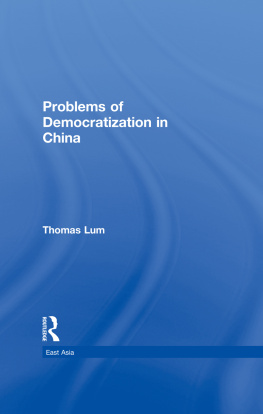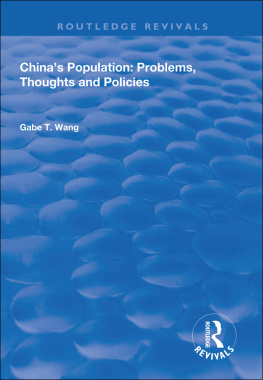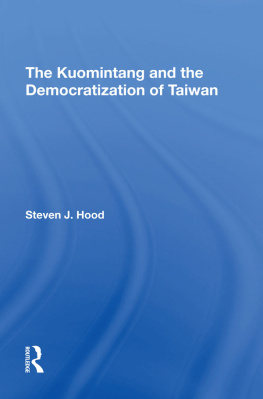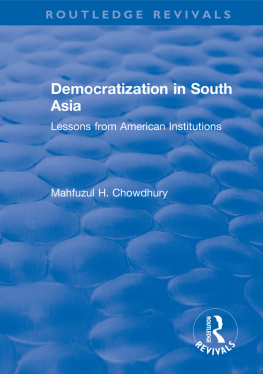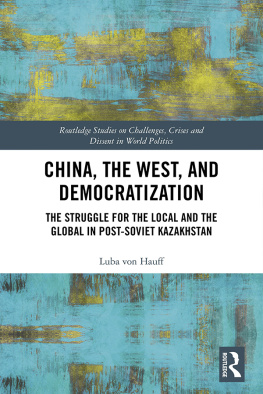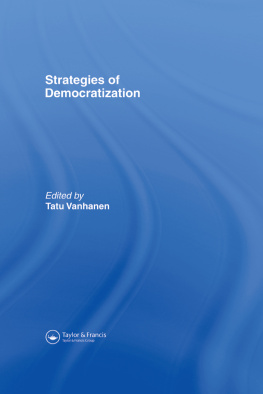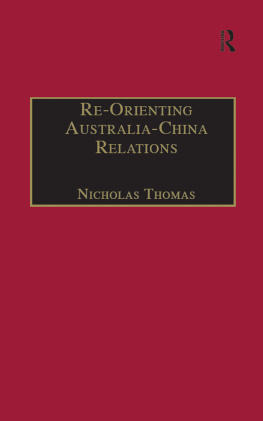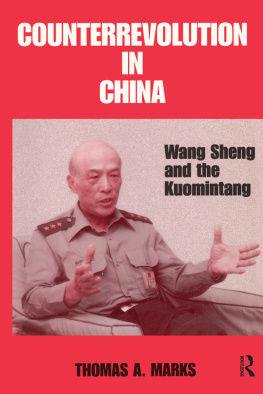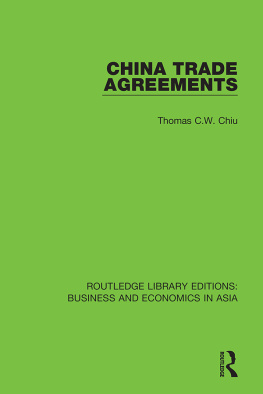First published in 2000 by
Garland Publishing Inc.
This edition published 2013 by Routledge
711 Third Avenue, New York, NY 10017
2 Park Square, Milton Park, Abingdon, Oxon OX14 4RN
Routledge is an imprint of the Taylor & Francis Group, an informa business
Copyright 2000 by Thomas Lum
All rights reserved. No part of this book may be reprinted or reproduced or utilized in any form or by any electronic, mechanical, or other means, now known or hereafter invented, including photocopying and recording, or in any information storage or retrieval system, without permission in writing from the publishers.
Library of Congress Cataloging-in-Publication Data
Lum, Thomas.
Problems of democratization in China / Thomas Lum.
p. cm. (East Asia)
Includes bibliographical references and index.
ISBN 0-8153-3871-6 (alk. paper)
1. DemocratizationChina. 2. ChinaPolitics and government1976I. Title. II. East Asia (New York, N.Y.)
JQ1516.L85 2000
320.951dc21
00-042692
INTRODUCTION
Change and Inertia
In the 1980s, China appeared to be taking halting steps toward greater political freedom. The words of Chinese intellectuals, calling for liberal thinking and institutions, echoed the ideas of educated elites in the early 20th Century. Public opinion polls of urban residents and students showed strong support for democracy and political pluralism. Several democratic movements sprang up among intellectuals, students, and workers in major cities, culminating in the mass demonstrations at Tiananmen Square in the Spring of 1989. Communist Party chief Zhao Ziyang and other leading officials adopted a more consultative style of rule and sponsored studies on political reform. Popular elections were instituted for village committees and assemblies, county and district peoples congresses, and factory directors and workers congresses. Political, social, and economic changes reduced the regimes monopoly on power. These included new limits on the coercive and normative controls of the state, decentralization of authority, development of a legal system, increased academic, cultural, and business exchanges with other countries, and expansion of economic freedoms.
Meanwhile, between 1974 and 1990, over 30 countries made or began a transition to democracy. Many of these countries were similar to China in terms of political system, level of socio-economic development, or culture. Hence, the ruthlessness of the political crackdown in 1989 and the Partys effectiveness in suppressing dissent through the 1990s seem incongruous with both the heady atmosphere in China during the late 1980s as well as the political currents in the Third World and Soviet bloc. Events in China beg the question of how such seemingly contradictory trends could arise, and why the PRC is unique among developing and former communist states. This book examines academic studies of Chinese politics in the 1990s and suggests answers to the question of why China has not democratized.
The scholarly literature on Chinese politics and issues related to Chinese democratization is voluminous. However, few works produced in the 1990s treat the question of Chinese democratization as a whole. This study aims to follow Huntingtons methodology, whereby numerous factors are compared in significance and related to each other.1 This book suggests a composite theory of Chinese democratization that examines and synthesizes political, social, and cultural variables.
Before I lay out the framework for this study, a basic definition of democratization is in order. Democratization is change from oligarchic and unresponsive rule toward the establishment of widely accountable government. Popular influence over the political process is maintained chiefly through the exercise of civil liberties and the regular holding of elections that provide for political competition and participation. These methods are institutionalized and protected by law. This work refers to democratization as a process by which the government becomes more and more constrained by the inputs of educated elites, public opinion, formal institutions, the rule of law, and linkage mechanisms such as elections, interest groups, and the mass media.2
divides academic theories of democratization roughly into three categoriespolitical, social, and cultural. Political theories of democratization refer primarily to the choices and behavior of politicians, both within the government and among opposition forces. Social paradigms emphasize the effects of economic development and capitalism upon society and politics. Cultural explanations focus upon the political attitudes that are necessary for democratization and the maintenance of democracy. Political, institutional, social, and cultural conditions combine to support the process of democratization.
examines major works of the 1990s on Chinese politics and offers a theory of the main impediments to a transition from authoritarian rule in China. First, I argue that four commonly cited obstacles to democratization in China can be overcome or are not the key factors in explaining the problem. These are: low socio-economic development; underdeveloped capitalism and the lack of a significant bourgeoisie; weak civic culture; and tenuous legal traditions.
Second, four factors are critical for maintaining authoritarian rule in China: the strength of state controls over society; Chinese communist institutions, particularly behavioral patterns of informal politics and the operating principle of centralism; the lack of autonomy of intellectuals; and the weakness of political organization among workers and peasants. These conditions inhibit democratization at three critical junctures or sub-processeswhere social unrest induces divisions within the regime, where reform factions arise within the party-state and reach out to opposition groups, and where democratic forces coalesce in the society.
looks at sources of organized dissent within the party-state. They include basic and higher level party organizations, provincial governments, central bureaucracies, and the National Peoples Congress. This study suggests that patterns of informal politics and centrist values inhibit the rise of political pluralism. The party-state lacks enduring, issue-oriented organizations and factions that may articulate and aggregate political interests and serve as endogenous pressure groups for reform.
describes social, political, and cultural obstacles to effective collective action and to the building of intermediary associations that would unify peasants and workers, facilitate their cooperation with other groups, and enable them to bargain effectively with the state as Solidarity did in Poland. The peasantrys contribution to Chinese democratization is hampered by parochialism and particularism, the lack of intermediary organizations, and a subject orientation. Workers are similarly constrained by cellular or closed social arrangements, the coercive controls of the state, and feelings of alienation from politics. However, growing rightful resistance among peasants and increasing labor ties to intellectuals provide hope for change.
In conclusion, this study discusses the relative significance of each critical obstacle to democratization and suggests some possible sequences of events. The book makes some predictions regarding the impediments most likely to weaken in the near future and their effects upon Chinese politics. Finally, this work makes some suggestions for further analysis of democratization in China and elsewhere.


